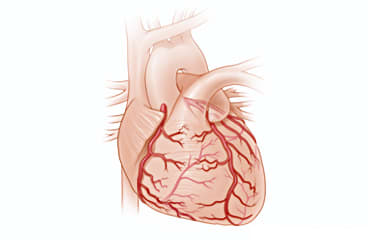Overview

Statins are medicines that lower your cholesterol and your risk for a heart attack and stroke.
Cholesterol is a type of fat (lipid) in your blood. If you have too much cholesterol, it can lead to the buildup of fatty deposits called plaque (say "plak") in artery walls. This is called hardening of the arteries. It raises your risk of coronary artery disease (CAD), heart attack, and stroke.
Statins lower cholesterol by blocking how much your body makes. Statins also reduce inflammation around the plaque. This can lower the risk that the plaque will break apart and cause a blood clot that can lead to a heart attack or stroke.
Examples of statins include:
- Atorvastatin (Lipitor).
- Pravastatin (Pravachol).
- Simvastatin (Zocor).
Statins interact with many medicines. So tell your doctor all of the other medicines that you take. These include prescription medicines, over-the-counter medicines, dietary supplements, and herbal products.
Take a statin as it is prescribed so that it can work well. High cholesterol doesn't make you feel sick. That's why some people may not feel that they need to take their medicine. But it's important to take your statin because it can lower your risk of heart attack and stroke. Talk with your doctor if you have side effects that bother you.
A heart-healthy lifestyle is important for lowering your risk whether you take statins or not. This includes eating healthy foods, being active, staying at a weight that's healthy for you, and not smoking or vaping.
Follow-up care is a key part of your treatment and safety. Be sure to make and go to all appointments, and call your doctor if you are having problems. It's also a good idea to know your test results and keep a list of the medicines you take.
How can you care for yourself at home?
- Take statins exactly as your doctor tells you. High cholesterol has no symptoms. That's why some people may not feel that they need to take their medicine. Have a plan, such as a calendar reminder or a pill box, that reminds you to take them.
- Check with your doctor or pharmacist before you use any other medicines, including over-the-counter medicines. Make sure your doctor knows all of the medicines, vitamins, herbal products, and supplements you take. Taking some plant products or supplements together with medicines can cause problems.
- Call your doctor if you have side effects that bother you. There may be different statins you can try. Work with your doctor to find the right statin for you.
- Have a heart-healthy lifestyle. Eat heart-healthy foods, be active, don't smoke or vape, and stay at a weight that's healthy for you.
- Talk to your doctor about avoiding grapefruit juice if you take statins. Grapefruit juice can raise the level of this medicine in your blood. This could increase side effects.
When should you call for help?
Watch closely for changes in your health, and be sure to contact your doctor if:
- You think you are having problems with your medicine.
- You have aches or muscle pain.
Where can you learn more?
Go to http://www.healthwise.net/patientEd
Enter R358 in the search box to learn more about "Statins: Care Instructions".
Current as of: October 2, 2025
Author: Ignite Healthwise, LLC Staff
Clinical Review Board
All Ignite Healthwise, LLC education is reviewed by a team that includes physicians, nurses, advanced practitioners, registered dieticians, and other healthcare professionals.

